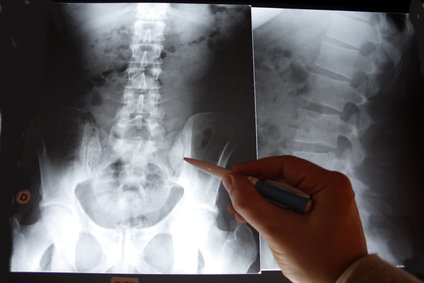 Vitamin K is usually associated with clotting. It's a fat-soluble vitamin and comes from the German word "koagulation." Besides being instrumental in clotting, Vitamin K is really important in calcium-binding. Vitamin K plays an important role in bone health.
Vitamin K is usually associated with clotting. It's a fat-soluble vitamin and comes from the German word "koagulation." Besides being instrumental in clotting, Vitamin K is really important in calcium-binding. Vitamin K plays an important role in bone health.
Healthy adults, those getting lots of exercise and eating a nutritional diet, generally have no vitamin K deficiency. But epidemiological studies show a relationship between vitamin K and age-related bone loss. Osteoporosis is a concern in senior health, especially among women. A heart study of over 800 elderly men and women, revealed that those with the highest diets of vitamin K had a 65% lower risk of hip fracture than those that consumed the least amount of vitamin K. A ten year nurse's study of over 72,000 showed that women eating food with the least amounts of vitamin K had a 30% higher risk of hip fracture than women who had diets rich in vitamin K.
The primary dietary sources of vitamin K are generally green leafy vegetables and some vegetable oils (soybean, cottonseed, canola, and olive).
Three vitamin-K dependent proteins have been isolated in bone: osteocalcin, matrix Gla protein (MGP), and protein S. Osteocalcin is regarded as a sensitive marker of bone formation. Vitamin K is required for the gamma-carboxylation or modification of osteocalcin. Under-modification or undercarboxylation (ucOC), badly affects its capacity to bind to bone mineral. A study of 7,500 elderly women showed that high levels of ucOC was predictive of fracture risk. These results could also show a deficency of both vitamin D and vitamin K.
Vitamin K1 is available in the USA without a prescription in multivitamin and other supplements. Acceptable doses range from 10-120 mcg per supplement. Vitamin K2, menatetrenone (MK-4), has been used to treat osteoporosis in Japan.
"Bone" supplements may contain 100 to 120 mcg of vitamin K. The heart study shows that an individual would need to eat a little more than 1/2 cup of chopped broccoli (102-141 mcg) or a large salad of mixed greens every day for a decreased risk of hip fracture.
The Linus Pauling Institute recommends taking a multivitamin-mineral supplement and eating at least 1 cup of dark green leafy vegetables daily. Vitamin K gives us a good foundation of bone health.
c. 2012 - Live2AgeWell.com
This free blog article is made possible by the Linus Pauling Institute and the Roman Meal Company.
You may use this article in your newsletters or on your websites as long as you give proper credit AND link to www.live2agewell.com




